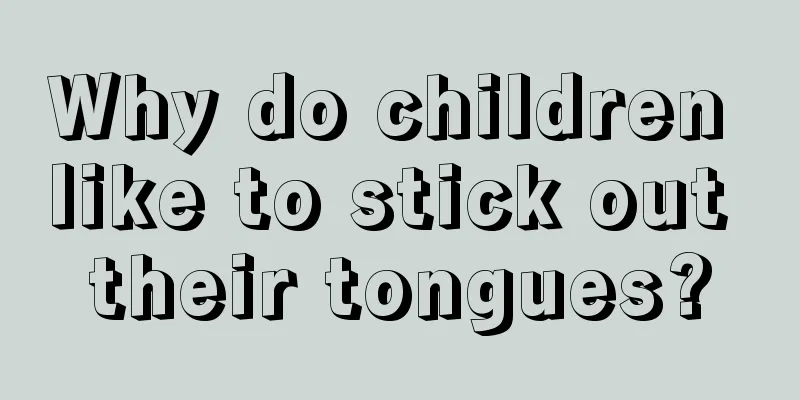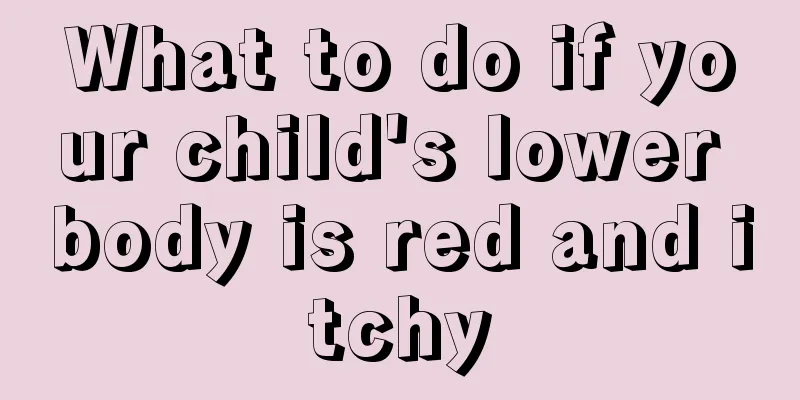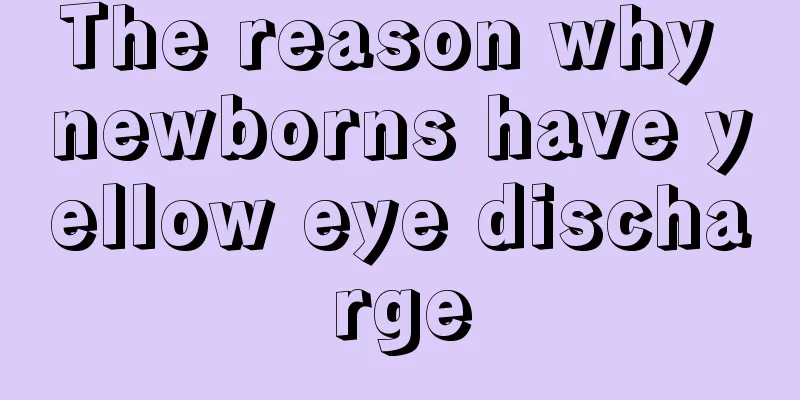Why do children like to stick out their tongues?

|
After the baby is born, as the baby's age increases, the baby's expressions become more and more rich, often giggling, frowning, and becoming more and more cute. Some careful parents have found that soon after the baby is born, he often sticks out his tongue, blows bubbles, etc., and has a lot of fun. However, parents are always worried that the baby's tongue sticking out may be a sign of abnormal health. So why do newborns love to stick out their tongues? Why do newborns stick out their tongues? In fact, the action of baby sticking out tongue is a "barometer" signal of the baby's physical and psychological development. 1. Baby's "oral stage" signals From birth to about one year old, babies are very interested in lip activities because the nerves in the baby's mouth develop faster than the nerves in other parts of the body. At this time, babies are more pursuing oral satisfaction, especially right after drinking breast milk, they will have a sense of satisfaction, so they love to stick out their tongues. 2. Healthy signs of baby's tongue development Two months after birth, the baby's salivary glands begin to secrete saliva, and the baby will lick with his tongue, and then will naturally stick out the tongue. If the frenulum connecting the baby's tongue and lower jaw is too short, the baby's tongue cannot extend outward beyond the lips, and the tongue cannot be stuck out, which has a great impact on breastfeeding and pronunciation. So if a baby sticks out his tongue, it just means that his tongue is fully developed. 3. Diet communication signals Although young babies cannot use language to communicate, they will stick out their tongues to communicate their dietary needs with adults at different times. There are three types of communication: A. "I'm full." If the baby sticks out his tongue after feeding, pushes away the nipple or pacifier, and then yawns and cries, he is indicating that he is full and the mother should not feed him anymore. B. "I'm hungry." If the baby sticks out his tongue eagerly and reaches out to grab the mother before feeding, it means that the baby is hungry. C. "It is not the right time to add complementary food." Many elders believe that the earlier you feed your baby complementary foods, the better, as it can expand the baby's stomach and the baby will eat more in the future. They often add thick or even solid complementary foods when the baby is 3 or 4 months old. Many babies will stick out their tongues to resist, which means that they are not yet able to accept such food and the timing is not right. 4. Curious Exploration Signal For a newborn baby, everything in the outside world is new, including himself. Before they learn gross motor skills, babies will use their mouths and tongues to explore, touch things around them, frequently stick out their tongues, or lick their fingers. Such exploratory movements can promote the baby's growth and development. 5. Imitate interactive signals As the baby grows month by month, his vision develops gradually and the range he can see becomes larger and larger. After 6 months of birth, he is basically the same as an adult. He can clearly see the facial expressions of his parents, understand the emotions conveyed by his parents, stick out his tongue in response, imitate the expressions of adults, and interact with his parents. Generally speaking, the older the baby gets, the more interesting things and games will distract him, and the tongue sticking action will decrease accordingly. If your baby still often sticks out his tongue, drools, has an enlarged tongue, and has difficulty eating after the age of 3, parents should pay attention and take the baby to the hospital for a comprehensive examination and treatment in time to help the baby correct the condition. |
<<: Can children take vitamin E?
>>: What to do if your child keeps picking his belly button
Recommend
Seven-month-old baby crying at night for different reasons
7-month-old babies tend to cry at night, but if t...
Why do newborns fart a lot and smell bad?
It is normal for newborns to fart. Generally spea...
What are the methods for breast enhancement for adolescent girls?
Adolescence is a developmental process. Our bodie...
How to control baby's sleeping time
A baby is a very cute little life. For a baby, sl...
What should you pay attention to when your child is changing teeth at the age of six?
As children grow and develop, their teeth will ge...
At what age do children start to grow hair?
As we all know, growing sweat hair is a very norm...
How to treat tracheitis in children?
If a child develops a respiratory disease such as...
How to brush your baby's teeth?
In life, since parents of children are very conce...
What to do if infants and young children have red and swollen throats
Newborns have very low immunity and their organs ...
Baby has diarrhea and anal ulcer
If the baby has diarrhea and anal skin is broken,...
Symptoms of poor absorption in babies and ways to improve them
If the baby's digestion and absorption are po...
What are the signs of good intellectual development in a three-year-old baby?
Teachers once said that there are no stupid peopl...
What should I do if a 12-year-old child has stomach pain?
As people's quality of life improves, their d...
What to do if baby's lips are blue?
The color of our lips can often indicate our heal...
What are the sequelae of pneumonia?
The incidence rate of pneumonia in life is relati...









